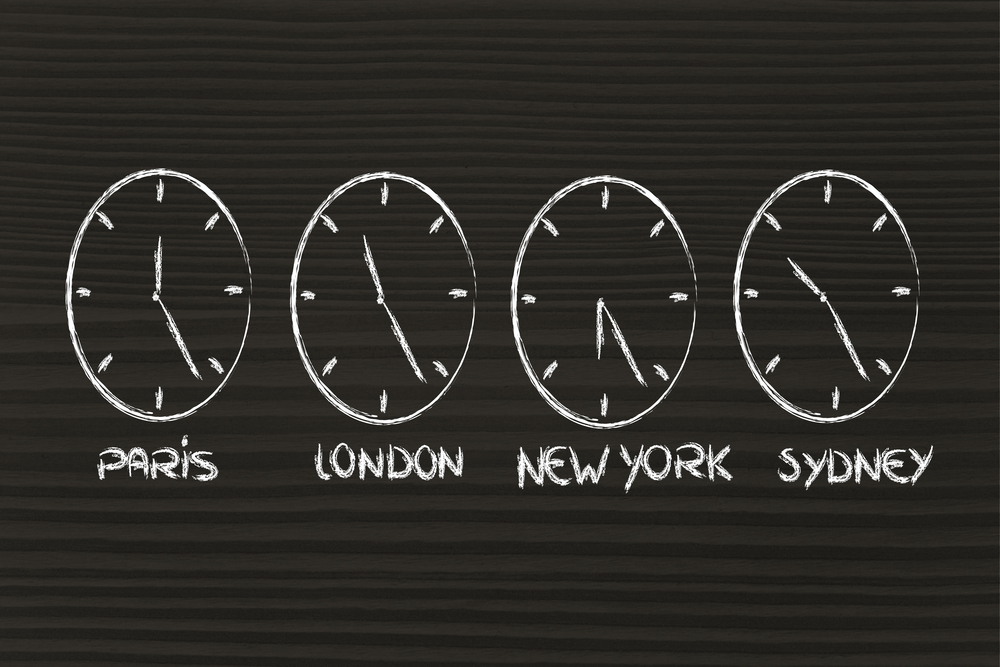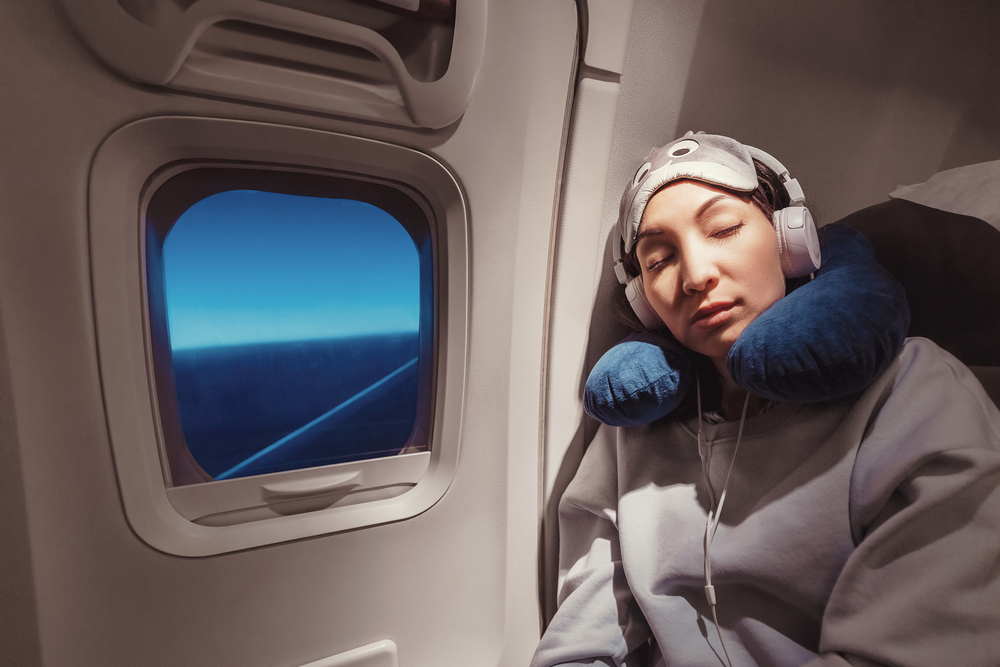I’ve experienced jet lag to beat the band, and it isn’t fun. I was unprepared and kind of in denial, so I did not plan for the onslaught of so many symptoms that caused us to lose a full day of fun. Now I know what jetlag is, how to prevent it, and what to do if it occurs. I am sharing my top tips and a few extra expert tips on how to get over jet lag.
Jet lag is real, and it is NOT fabulous. (Y’all get the Seinfeld reference)?

Affiliate Disclosure: There are affiliate links throughout this post. This means if you click on a link and purchase a product through that link, then I will receive a small commission for the referral. And that is kinda cool.
What is jetlag?
Jetlag occurs when your body’s natural clock (your Circadian Rhythm) is disrupted by crossing over multiple time zones for travel.
According to SleepFoundation.org, the Circadian Rhythm is your very own “24-hour internal clock that is running in the background of your brain and cycles between sleepiness and alertness at regular intervals. It’s also known as your sleep/wake cycle.”
When it gets dark outside, your eyes send a message to your brain that it’s time to go to sleep. Your brain, in turn, tells your body to release melatonin, which makes you tired.
Your Circadian Rhythm depends on darkness and daylight to function correctly, meaning it helps you sleep at night and stay awake during the day.
Traveling can mess up your circadian rhythm, causing jet lag, especially when crossing several time zones. It’s light when it should be dark, dark when it should be light, wreaking havoc on your Circadian Rhythm and messing up your sleep patterns.
Your body will eventually adjust to the new time zone, but there are ways to speed up the adjustment process and get on with your epic travel plans.

Who is at Risk of Experiencing Jetlag?
- The more time zones you cross, the higher the risk of experiencing symptoms of jet lag.
- Traveling in an easterly direction increases your risk as well. Remember, you are losing time when you travel east.
- An increase in age is a risk factor for jet lag.
- And being a frequent flyer will increase your risk as well.
What are the Symptoms of Jet Lag?
The symptoms of jetlag can range from minorly annoying to interfering severely with your travel plans.
Here are some signs that you may be experiencing jetlag.
- Fatigue is the most common symptom.
- Irritability.
- Feeling disoriented and difficulty concentrating.
- Nausea.
- Headache.
- Poor appetite.
- GI effects such as diarrhea and constipation.
- Insomnia. You know, when you are so tired you can’t sleep?
- And you won’t feel well altogether.
How long will these symptoms last?
“They” say that for each time zone you cross, add one day of jet lag symptoms.

12 Top Tips to Prevent Jet Lag.
- Arrive to travel day well-rested and nutritionally sound. Don’t start sleep-deprived, full of greasy food, or hungover.
- For a few days before departure, simulate your upcoming schedule. For example, move your bedtime a 1/2 hour to an hour earlier to prepare for your new schedule if traveling east. And move your mealtimes to simulate your new time zone.
- Sleep on the plane, if you can.
- If it is difficult for you to sleep on a plane, talk to your doctor about a prescription sleep aid. You can also consider melatonin. Here are expert tips on a peaceful slumber, even on an airplane.
- The selection of your flight time can make a difference. A late evening flight when you would typically be sleeping may help you rest on the plane.
- Switch your watch to the current time zone as soon as possible. There is no reason for you to be reminded of what time it is at home.
- When you arrive at your destination, get in the zone of your destination immediately. Resist sleeping off the day of long travel. Eat meals and sleep according to the new time zone.
- Remain hydrated; this will help stave off symptoms of jet lag and travel fatigue. Avoid alcohol and caffeine as they can interfere with restorative sleep.
- Stepping out in the sunlight will reduce the release of melatonin (the hormone that promotes sleepiness).
- Get a full night’s sleep the night of your arrival at your destination. And don’t fight a power nap the next day.
- I have heard that pushing through that first day, avoiding a nap, and remaining busy all day may help prevent jetlag. I have not tried this approach — I am willing to next time we travel across time zones.
- Give yourself some extra time and grace for the first 24 hours in the event of jetlag. Adjust your schedule if necessary.

How to Get Over Jet Lag.
- Once you arrive, don’t stay inside. Head out for fresh air and sunlight. Sunlight will decrease the release of melatonin.
- Stay active.
- Eat meals at mealtimes (not your usual mealtime, but the current mealtime). You may experience a decrease in appetite, but try to eat something light to help your body adjust.
- Avoid a long nap the day you arrive; stick to the less than a 30-minute power nap.
- Stick with your usual bedtime and wake time (but in your new time zone).
- Avoid Blue Light exposure at night — blue screen eReader, LED lights, fluorescent lighting, and light from the screens of our devices (cell phone, iPad, and laptop). The persistent exposure to light will reduce melatonin secretion and thus impair sleep.
- Read an actual book instead, before you are off to sleep.
- Here is a list of top tips for helping you fall asleep peacefully at night.
- Take melatonin to help regulate your biological clock. Melatonin is a natural hormone produced in our body to regulate our circadian rhythm. Levels of Melatonin are naturally highest at bedtime. Melatonin may help you fall asleep quicker and stay asleep longer.

Here are a few natural sleep remedies for a peaceful slumber.
Lavender Aromatherapy. ~ A personal diffuser is a nice touch, or a lavender sachet, lavender essential oil drops in your handkerchief for inhalation, a lavender-scented eye mask, or neck pillow.
Chamomile Tea. ~ Used for centuries, Chamomile Tea helps with relaxation and sleep and has anti-inflammatory properties.
Warm milk with honey. ~ Whole milk is a source of tryptophan, an essential amino acid that plays a role in serotonin production (mood stabilizer) and melatonin (helps regulate sleep patterns). And honey helps transport the tryptophan to the brain quicker.

So, the best way to combat jet lag is fresh air, sleep, sunshine, hydration, proper nutrition, exercise, and time when all is said and done.
What tips can you share that have helped you avoid or manage jet lag?


I have heard about jetlag but never experienced that. I mean, I have maximally crossed only 2 or 3 time zones at once, and at the end of the flight, it feels just like a very hard day, nothing more. Nevertheless, my dream is one day to travel from Europe to Peru… Brazilia and USA and I find all your tips very, very helpful!!! Thank you!
We flew to London and all four of us had a rough 24 hours after landing. I didn’t realize at the time what it was. We will definitely be more prepared next time.